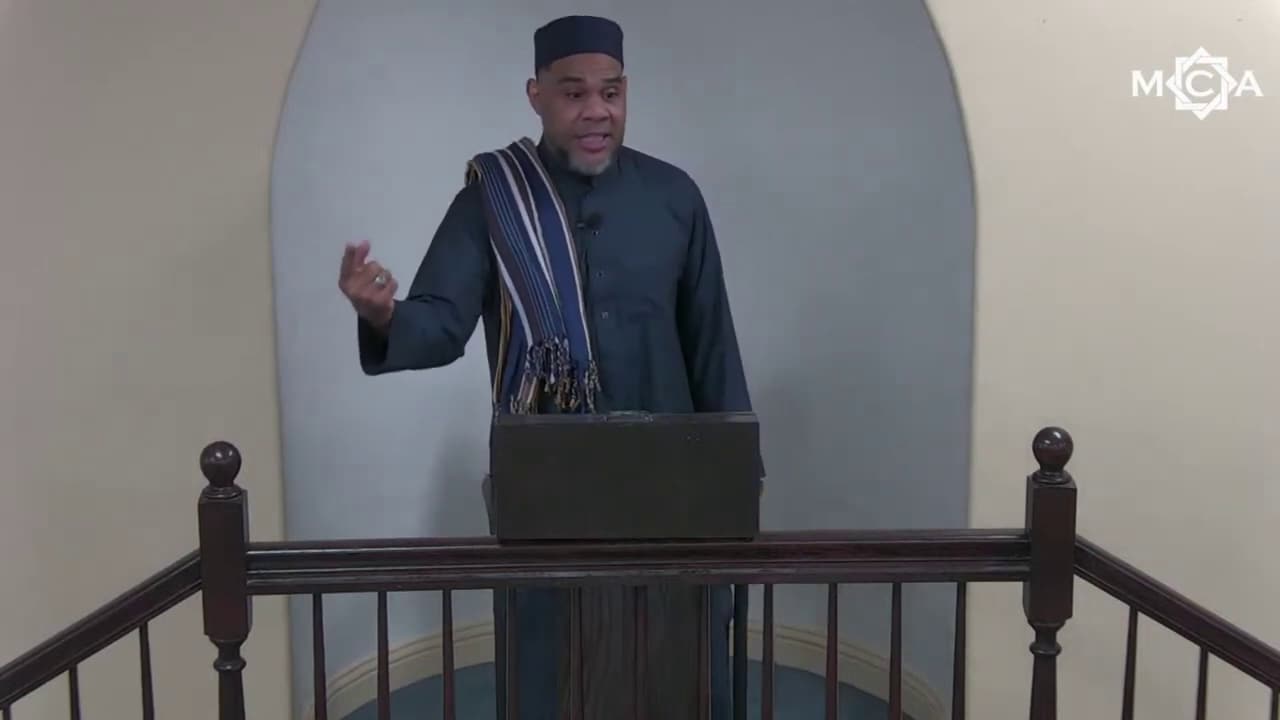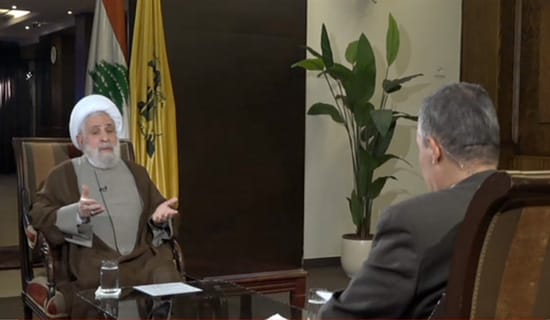
Following are excerpts from an Egyptian program about female circumcision, which aired on Al-Mihwar TV on June 24, 2007:
Reporter: This subject refuses to come to a close, despite all that has happened and continues to happen. Bodur was like a small blossoming flower. She lived a simple life. She played and had fun like other children, and she was full of joy. She completed sixth grade with excellent marks. Then her mother decided to have her circumcised, not knowing what fate had in store for her.
[...]
Sharbat, eye-witness: The doctor brought the anesthetic and tried to inject it here, but it didn't work, so she injected it here. After she had injected it and cut the girl, I looked at the girl, and I saw her lips went blue. I shouted: "Doctor... My God, the girl's gone blue." She said: "Place you hand here like that," but I couldn't feel her breathing. I said: "She isn't breathing. Why isn't she breathing?" She cut and put bandages on the girl and said: "Hold the bandage so I can see the girl." She began slapping her, but the girl wasn't breathing.
Reporter: The doctor did not stop there, but tried to cover her mistake with another.
[...]
Asmaa, Bodur's sister: We were at the hospital, and [the doctor and her husband] said to us: "We'll give you whatever you want, but let's keep it between us."
[...]
We refused, and Dr. Allam threatened us: "They'll perform an autopsy on your sister, and your mother will get 3 years in jail."
[...]
Reporter: A mother who followed the customs on which she was raised, and a doctor who makes the mistake of performing operations in her private clinic – the result is the murder of an innocent girl. She is not the first, but will she be the last?
[...]
Interviewer: How many girls do you have?
Zaynab Mahmoud, Bodur's mother: I have four girls apart from Bodur.
Interviewer: Four girls?
Bodur's mother: Yes.
Interviewer:And you live in Maghara in the district of Al-Minya. Did you have them all circumcised?
Bodur's mother: Yes.
Interviewer: Why?
Bodur's mother: Bodur was the last one to be circumcised.
Interviewer: You wanted to have Bodur circumcised, but she died in the process. But why did you insist on having her circumcised? Haven't you heard people say that it is not required, and that our religion does not say you must do it?
Bodur's mother: I have heard this, but this is something we've grown up with. This goes back to the days of my mother, my grandmother, and the days of our forefather. Besides, for us it is a disgrace to leave a girl like that.
Interviewer: It is a disgrace?
Bodur's mother: Yes.
Interviewer: So if you hadn't done this, people would have mocked you?
Bodur's mother: They wouldn't have mocked me, but they would have though that it is not good.
Interviewer: Did you have fears before you had each of them circumcised, or was it a regular thing?
Bodur's mother: Yes, I was afraid, which is why I didn't go inside with them.
Interviewer: I would like to ask Zaynab a question, with your permission, May. Did you feel that if you did not carry our this "purification" of your girls, they would be immoral when they grow up?
Bodur's mother: No, it has nothing to do with this.
Interviewer: So what made you send your daughters to be circumcised?
Bodur's mother: I am telling you, this is something we've grown up with. Besides, I am not the only one who does it. My neighbor does it, and her neighbor and many other people do it, not only me...
Interviewer: As you said, it is a custom in society.
Bodur's mother: ...and my brothers, and their children...
Interviewer: Your entire family...
Bodur's mother: Yes.
Interviewer: I'd like to ask you something. If most religious scholars... If you had heard on TV and from the Mufti that female circumcision is prohibited – would you still do it?
Bodur's mother: No, of course not.
[...]
After the evening prayers, Bodur went to shower, and then I said to her: "Amal, let's go..." We call her "Amal" at home. I said to her: "Amal, let's go to the doctor so she can have you purified." That was it. She said: "Okay, Mother," and we went. She wore her robe, put on her head covering, and we left. She greeted her friends and our neighbors as we were walking. Then we got to the clinic. We stopped by Sharvat, who is here with me. We took her with us, and I said to her: "Come along so you can be with Amal during the thing," because I am afraid and don't like to go in with any of my children.
Interviewer: You can't tolerate going inside with them?
Bodur's mother: No, I can't.
Interviewer: Bodur, may she rest in peace, was 12 years old, right?
Bodur's mother: Yes. Sharbat came along, and the three of us walked to the doctor's clinic. There were three girls waiting there with their mothers. There was one girl inside undergoing the same procedure. So we sat and waited. Then, someone who looked like a nurse came out, and asked: "Does this girl need purification?" We said: "Yes." She went to the doctor and returned with a prescription, and said to me: "Go get it from the pharmacy." There was a pharmacy open across from the clinic, and I went to get her the injections. He handed me two injections to prevent hemorrhaging. The pharmacy doctor told the assistant what to get. He said to him: "Two injections against hemorrhaging, and one syringe of papaverine. He put two cc of anesthetics from a big bottle into the syringe. He put it in the bag and told me it was eight pounds, and I gave him the money. By the time I got back, the girl was not in the waiting room. I asked the woman: "Where is the girl and the woman with her?" She said: "She went into the operating room." I said to the woman: "Okay," and she took the bag with the medicine, and I said to her: "Tell the doctor to examine her first."
[...]
I called my daughter Amani at home, and said to her: "Send money with your sister's husband to the clinic. I will be waiting for him in front of the clinic." I explained to her how to get there, and said I would be waiting. It is a ten minute walk from my home to the clinic, and he arrived with the money. When we entered the clinic, my daughter Asmaa said: "Come quickly, Mother, the husband has joined his wife, the doctor, and has begun pressing on Amal's chest." He was pressing on her chest this way. Of course, I went into shock, and said to her: "What does this mean? Is your sister dead?" She said: "I don't know." The doctor gave Asmaa a prescription and told her to get it from the pharmacy. She went and got it. He went in and closed the door behind him and his wife. I began banging on the door: "Sharbat, what's wrong with the girl?" She said: "Nothing is wrong, be patient." Me and her sister were in a bad state. We began screaming, and then I fainted. When I opened my eyes, I was outside the room, and I saw that the girl was covered in a sheet. I asked the husband: "Is the girl dead?" He said: "No, the girl is alive, but she needs artificial respiration, so we are taking her to the hospital." He put her on a wagon with Sharbart. I could not ride with my daughter because I knew she was dead.
[...]
We followed them to the hospital. We were walking, so he got there before us. The minute we got there, I asked Sharbat: "What's wrong with the girl?" And she said: "The girl is dead."
Interviewer: There is no god but Allah.
Bodur's mother: That was it.
[...]
Voice of Mufti of Egypt, Ali Gum'a: We've warned time and again that this thing... It has become clear to us, in modern times, with all the medical information we have, that this is inappropriate, and that it causes severe damage from the medical, social, and human aspects. So we [decided] to refrain from performing this custom and to prevent it. We've said this once, twice, three times, and ten times... Not only now, but since 1954, we have been calling upon people to abandon this ugly custom.
Interviewer: Honorable Mufti, forgive me for interrupting, but our pace is kind of fast... As the Mufti of Egypt – is this prohibited or permitted?
Ali Gum'a: This issue, with these characteristics, in our times – is prohibited. If they want to know what the Mufti of Egypt has to say. I say this custom is prohibited.
Interviewer: Female circumcision is prohibited, as stated clearly and categorically by the Mufti of Egypt, Dr. Ali Gum'a. Female circumcision is prohibited.
[...]
Su'ad Saleh, Al-Azhar University: After the Mufti, there is nothing left for me to say. This is what I have been demanding from the Mufti and the religious scholars – a categorical ruling on such issues. But when some of them say that this is permitted "when necessary," and if a doctor performs it... It was a doctor who did this, and look at the result... Society as a whole is responsible for the death of this girl. This is tantamount to the custom of burying girls alive, before the advent of Islam. It is like the burying the girl in the physical and psychological sense.
Ahmad 'Aliwa, Women's Right Activist: There is no deterring law or Ministry of Health regulation that criminalizes female circumcision.
Interviewer: What about the 1996 resolution of the health minister which criminalizes, or forbids, female circumcision?
Ahmad 'Aliwa: It only forbids it in places other than government hospitals, but within government hospitals it is permitted.
[...]
Our center worked with a village called Burtous. We raised awareness about the damage caused by female circumcision. We held meetings about female circumcision and its relation to religion, to medicine, and to the law. In one meeting we gathered over 200 women, and tried to convince them that female circumcision has nothing to do with the religion. We had with us a doctor from the University of Cairo, who spoke about the medical damage. When we finished the meetings, and began another series, we were surprised to find that the women had gone to their local imams, who said to them: "No, these people have a Western agenda, and they have Western ideas, to which they are trying to draw you."
[...]
Su'ad Saleh: Maybe there should be punishment in kind, and the doctor who does such a thing should have to undergo it herself. But as long as there is no religious opinion on which people can rely... In addition, there is confusion...
Interviewer: You say that a doctor who performs this...
Su'ad Saleh: As a punishment in kind...
Interviewer: ... will be subjected to the same procedure herself, to serve as an example?
Su'ad Saleh : Yes. The only problem is when the doctor is a man.
[...]
Ahmad 'Aliwa: The Center for Social Studies conducted a survey which showed that 85% of the prostitutes in Egypt were circumcised. There is no relation between female circumcision and the girls' behavior.













